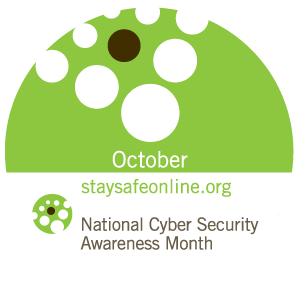 October is National Cyber Security Awareness Month. The African-American Cyber Report is dedicated to bringing the latest most relevant cyber security news and information to black people. The AACR answers black people when they ask; “What does that mean to me?”
October is National Cyber Security Awareness Month. The African-American Cyber Report is dedicated to bringing the latest most relevant cyber security news and information to black people. The AACR answers black people when they ask; “What does that mean to me?”
Cyber security has become the single most urgent topic of our age. More people fear having their identity stolen than being robbed at gunpoint or murdered.
As part of National Cyber Security Awareness Month the AACR is revealing the top cyber security threats of 2015 and the coming new year and how black people can guard against these threats.
Dangers of Public Wi-Fi
Free Internet! What a joy and convenience for business people and travelers when they can access the Internet at will without being charged. Free Wi-Fi is also a benefit to businesses that provide it to customers. Any location that offers Wi-Fi is often filled with people focused on their laptops. But free Wi-Fi is also a danger to black people who are unaware of how open and free that network connection really is.
Free and open Wi-Fi is a prime hunting ground for cyber criminals. These networks are open and all the information flying through the air is like fresh hanging fruit to thieves. Hackers and cyber criminals are often sitting in the room, and probably at the table next to you, watching the Internet traffic moving through Wi-Fi hotspots. They are collecting information from users that include user names and passwords to websites, personal information from your computer or smartphone. Hackers are even capable of planting malware and viruses on computers without the owners even knowing it. The result is hijacked bank accounts or stolen identities
But if you think that is bad it gets worse. Even if you don’t use the free Wi-Fi you could still be in danger. Many locations, especially airports, offer free charging stations. Well hackers have found those and are hacking phones, laptops and tablets while they are re-charging.
Hackers are using small inexpensive computers called a “Mactan.” They secretly install these tiny devices at charging stations to hack personal devices including iPhones. It is particularly frightening when you realize that free charging stations are popping up everywhere and most are un-attended and insecure. Many times you can find free promotional charging stations at events where many people gather including conventions and sporting events. Beware! Anyone can slip a device inside.
How simple is it? Here are the steps;
- Build the “Mactan. Cost, about $50.
- Hide the Mactan inside a public charging station and wait.
- Someone comes along and plugs in a cell phone for a quick charge.
- The virus takes less than a minute to upload.
- Done! Your phone or laptop is now infected. The virus can now steal personal information or transmit the phone’s location to a hacker.
Alicia diVittorio, consumer safety advocate for mobile security company Lookout says, “There’s definitely a security risk associated with public charging stations. It can be an open channel for potential attackers. We recommend against using them.”
So how do you stay safe when using public Wi-Fi?
- Always use a VPN connection. This software encrypts your data and location from a hacker. You can find the best free VPN software here.
- Watch what sites you visit. Stay away from sites that requires a user name and password like your bank, favorite shopping website, social media or email. Visit those sites from home or a safe connection.
- Be aware of your surroundings. Someone may be watching you. Make sure no “shoulder surfers” are watching what you while you cruise the net. Consider purchasing a privacy screen to take along with you. Or at least sit with your laptop screen turned away from everyone else. What about that guy who seems to always be in the coffee shop whenever you go there. Is he a hacker?
- Keep your device charged. Make sure your device is fully charged before leaving home and only use trusted power sources. A wall outlet is best. You may want to buy a charger for your car.
Now you know.
